Dates and Chinese dates, also known as jujube, are two popular fruits with distinct flavors, textures, and nutritional profiles. While both are delicious and packed with health benefits, there are some key differences between the two. In this article, we will delve into the unique characteristics of Chinese dates and dates, explore their culinary uses, and discuss the health benefits they offer. **Origins and Varieties** Dates, which are commonly found in the Middle East and North Africa, come from the date palm tree and have been cultivated for thousands of years. They are known for their sweet, caramel-like flavor and chewy texture. Dates can be eaten fresh, dried, or even used in cooking and baking. Chinese dates, on the other hand, are produced by the jujube tree and have been a staple in Chinese culture for centuries. Chinese dates have a unique sweet and tangy flavor, similar to apples. They are often consumed dried, either on their own or as an ingredient in various traditional Chinese dishes and herbal remedies. **Flavor and Texture** One of the main differences between dates and Chinese dates lies in their flavor profiles. Dates have a rich, sweet taste with notes of caramel and honey, while Chinese dates offer a contrasting sweet and tangy flavor reminiscent of apples. The texture of dates is chewy and sticky, whereas Chinese dates have a slightly crunchy texture, similar to that of an apple. In terms of versatility, both fruits can be enjoyed on their own as a sweet snack or used in a variety of culinary applications. Dates are commonly used in desserts such as date squares, energy bars, and smoothies, while Chinese dates are often found in savory dishes like braised meats, soups, and stews. **Nutritional Benefits** Both dates and Chinese dates are packed with essential nutrients that can contribute to a healthy diet. Dates are rich in fiber, vitamins, and minerals, including potassium, magnesium, and iron. They are also a good source of antioxidants, which can help protect the body from oxidative stress and inflammation. Chinese dates are equally nutritious, containing high levels of vitamin C, flavonoids, and antioxidants. These compounds can support the immune system, promote healthy skin, and reduce inflammation in the body.
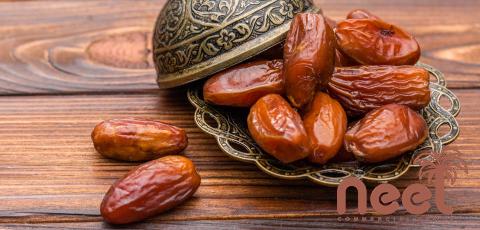
.
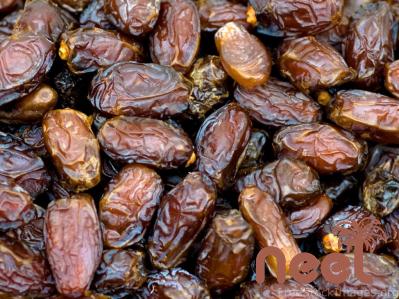 Chinese dates are also known for their calming properties and are often used in traditional Chinese medicine to improve digestion and relieve stress. **Health Benefits** The health benefits of dates and Chinese dates are plentiful, making them a valuable addition to any diet. Dates are known for their ability to promote digestion, regulate blood sugar levels, and improve heart health. The fiber content in dates can aid in digestion and promote a healthy gut microbiome. Chinese dates, on the other hand, are often used to boost energy levels, support liver function, and enhance overall vitality. The antioxidants and vitamin C found in Chinese dates can help protect cells from damage, reduce inflammation, and promote overall well-being. Chinese dates are also believed to have adaptogenic properties, which can help the body cope with stress and improve resilience. **Culinary Uses** Both dates and Chinese dates can be incorporated into a wide range of culinary creations, from sweet to savory. Dates are commonly used in baking to add natural sweetness and moisture to recipes. They can be blended into smoothies, chopped and added to oatmeal, or stuffed with nuts or cheese for a delicious appetizer. Chinese dates are a popular ingredient in Chinese cuisine, where they are often used in soups, herbal teas, and medicinal tinctures. Their sweet and tangy flavor pairs well with meats, particularly in braised dishes and stir-fries. Chinese dates can also be enjoyed on their own as a nutritious snack or added to salads for a burst of flavor. **Conclusion** In conclusion, both dates and Chinese dates are nutritious fruits that offer a range of health benefits and culinary possibilities. While dates are known for their rich sweetness and chewy texture, Chinese dates stand out with their unique sweet and tangy flavor profile. Whether you prefer the caramel-like taste of dates or the apple-like crunch of Chinese dates, both fruits are worth including in your diet for their nutritional value and versatile uses in the kitchen.
Chinese dates are also known for their calming properties and are often used in traditional Chinese medicine to improve digestion and relieve stress. **Health Benefits** The health benefits of dates and Chinese dates are plentiful, making them a valuable addition to any diet. Dates are known for their ability to promote digestion, regulate blood sugar levels, and improve heart health. The fiber content in dates can aid in digestion and promote a healthy gut microbiome. Chinese dates, on the other hand, are often used to boost energy levels, support liver function, and enhance overall vitality. The antioxidants and vitamin C found in Chinese dates can help protect cells from damage, reduce inflammation, and promote overall well-being. Chinese dates are also believed to have adaptogenic properties, which can help the body cope with stress and improve resilience. **Culinary Uses** Both dates and Chinese dates can be incorporated into a wide range of culinary creations, from sweet to savory. Dates are commonly used in baking to add natural sweetness and moisture to recipes. They can be blended into smoothies, chopped and added to oatmeal, or stuffed with nuts or cheese for a delicious appetizer. Chinese dates are a popular ingredient in Chinese cuisine, where they are often used in soups, herbal teas, and medicinal tinctures. Their sweet and tangy flavor pairs well with meats, particularly in braised dishes and stir-fries. Chinese dates can also be enjoyed on their own as a nutritious snack or added to salads for a burst of flavor. **Conclusion** In conclusion, both dates and Chinese dates are nutritious fruits that offer a range of health benefits and culinary possibilities. While dates are known for their rich sweetness and chewy texture, Chinese dates stand out with their unique sweet and tangy flavor profile. Whether you prefer the caramel-like taste of dates or the apple-like crunch of Chinese dates, both fruits are worth including in your diet for their nutritional value and versatile uses in the kitchen.
..
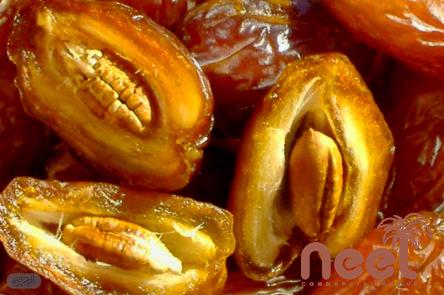 Overall, incorporating dates and Chinese dates into your diet can provide a delicious way to boost your health and well-being. Whether you enjoy them as a snack, bake them into desserts, or use them to enhance savory dishes, these fruits offer a delightful combination of flavor, nutrition, and culinary creativity. So next time you’re looking for a sweet and nutritious treat, consider reaching for dates or Chinese dates and experience the unique benefits each fruit has to offer. **Choosing Between Dates and Chinese Dates** When it comes to choosing between dates and Chinese dates, personal preference plays a significant role. If you enjoy the rich sweetness and chewy texture of dates, you may find them perfect for baking, snacking, or adding natural sweetness to your dishes. On the other hand, if you prefer a fruit with a sweet and tangy flavor reminiscent of apples, Chinese dates could be an exciting addition to your pantry. In terms of health benefits, both fruits offer valuable nutrients and antioxidants that can support your overall well-being. Dates are known for their digestive benefits and high fiber content, while Chinese dates are prized for their vitamin C and antioxidant properties that can boost your immune system and protect cells from damage. **Incorporating Dates and Chinese Dates into Your Diet** There are countless ways to incorporate dates and Chinese dates into your daily diet, whether you enjoy them as a snack, dessert, or savory dish. Here are a few creative ideas to help you make the most of these nutritious fruits: **1. Snacking:** Enjoy dates or Chinese dates on their own as a satisfying snack. Mix them with nuts, seeds, or cheese for a nutritious and flavorful snack that will keep you energized throughout the day.
Overall, incorporating dates and Chinese dates into your diet can provide a delicious way to boost your health and well-being. Whether you enjoy them as a snack, bake them into desserts, or use them to enhance savory dishes, these fruits offer a delightful combination of flavor, nutrition, and culinary creativity. So next time you’re looking for a sweet and nutritious treat, consider reaching for dates or Chinese dates and experience the unique benefits each fruit has to offer. **Choosing Between Dates and Chinese Dates** When it comes to choosing between dates and Chinese dates, personal preference plays a significant role. If you enjoy the rich sweetness and chewy texture of dates, you may find them perfect for baking, snacking, or adding natural sweetness to your dishes. On the other hand, if you prefer a fruit with a sweet and tangy flavor reminiscent of apples, Chinese dates could be an exciting addition to your pantry. In terms of health benefits, both fruits offer valuable nutrients and antioxidants that can support your overall well-being. Dates are known for their digestive benefits and high fiber content, while Chinese dates are prized for their vitamin C and antioxidant properties that can boost your immune system and protect cells from damage. **Incorporating Dates and Chinese Dates into Your Diet** There are countless ways to incorporate dates and Chinese dates into your daily diet, whether you enjoy them as a snack, dessert, or savory dish. Here are a few creative ideas to help you make the most of these nutritious fruits: **1. Snacking:** Enjoy dates or Chinese dates on their own as a satisfying snack. Mix them with nuts, seeds, or cheese for a nutritious and flavorful snack that will keep you energized throughout the day.
…
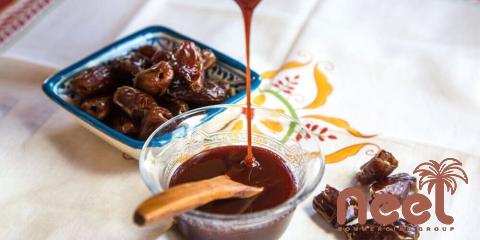 **2. Baking:** Use dates in baking to add natural sweetness and moisture to your recipes. Make date squares, energy bars, or date-filled cookies for a delicious and wholesome treat. **3. Smoothies:** Blend dates or Chinese dates into your favorite smoothie recipe for a sweet and nutritious boost. Their natural sweetness pairs well with fruits, vegetables, and protein powder for a balanced and satisfying drink. **4. Cooking:** Experiment with Chinese dates in savory dishes such as braised meats, soups, and stews. Their sweet and tangy flavor can add depth and complexity to your recipes, making them a versatile ingredient in Chinese cuisine. **5. Herbal Remedies:** Harness the medicinal properties of Chinese dates by incorporating them into herbal teas, tinctures, or tonics. Chinese dates are believed to support liver function, improve digestion, and promote overall vitality when consumed as part of traditional Chinese medicine practices. **Final Thoughts** Whether you choose dates or Chinese dates, both fruits offer a wide array of health benefits, culinary uses, and delicious flavors to enhance your diet and well-being. While dates are celebrated for their rich sweetness and chewy texture, Chinese dates bring a unique sweet and tangy taste that sets them apart from other fruits. By incorporating dates and Chinese dates into your daily routine, you can enjoy the benefits of their nutrient-rich profiles and versatile culinary applications. Whether you snack on them, bake with them, or cook savory dishes, these fruits provide a delightful way to add flavor, nutrition, and creativity to your meals. So next time you’re at the grocery store or market, consider picking up a bag of dates or Chinese dates and experiment with incorporating them into your favorite recipes. Whether you savor the sweet caramel notes of dates or the crisp apple-like taste of Chinese dates, these fruits offer a delightful journey of flavors and benefits waiting to be explored in your kitchen and beyond.
**2. Baking:** Use dates in baking to add natural sweetness and moisture to your recipes. Make date squares, energy bars, or date-filled cookies for a delicious and wholesome treat. **3. Smoothies:** Blend dates or Chinese dates into your favorite smoothie recipe for a sweet and nutritious boost. Their natural sweetness pairs well with fruits, vegetables, and protein powder for a balanced and satisfying drink. **4. Cooking:** Experiment with Chinese dates in savory dishes such as braised meats, soups, and stews. Their sweet and tangy flavor can add depth and complexity to your recipes, making them a versatile ingredient in Chinese cuisine. **5. Herbal Remedies:** Harness the medicinal properties of Chinese dates by incorporating them into herbal teas, tinctures, or tonics. Chinese dates are believed to support liver function, improve digestion, and promote overall vitality when consumed as part of traditional Chinese medicine practices. **Final Thoughts** Whether you choose dates or Chinese dates, both fruits offer a wide array of health benefits, culinary uses, and delicious flavors to enhance your diet and well-being. While dates are celebrated for their rich sweetness and chewy texture, Chinese dates bring a unique sweet and tangy taste that sets them apart from other fruits. By incorporating dates and Chinese dates into your daily routine, you can enjoy the benefits of their nutrient-rich profiles and versatile culinary applications. Whether you snack on them, bake with them, or cook savory dishes, these fruits provide a delightful way to add flavor, nutrition, and creativity to your meals. So next time you’re at the grocery store or market, consider picking up a bag of dates or Chinese dates and experiment with incorporating them into your favorite recipes. Whether you savor the sweet caramel notes of dates or the crisp apple-like taste of Chinese dates, these fruits offer a delightful journey of flavors and benefits waiting to be explored in your kitchen and beyond.
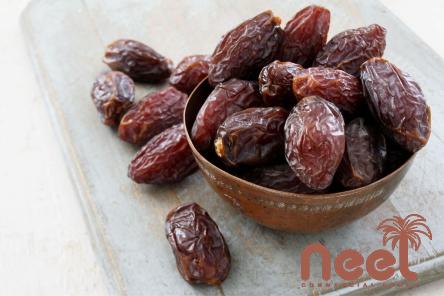
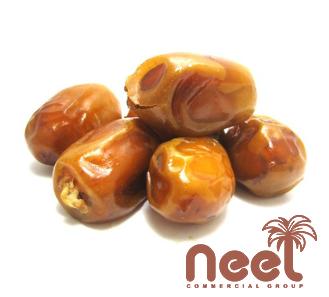
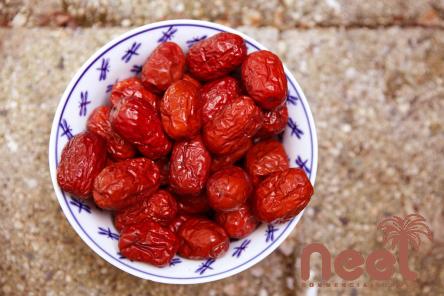
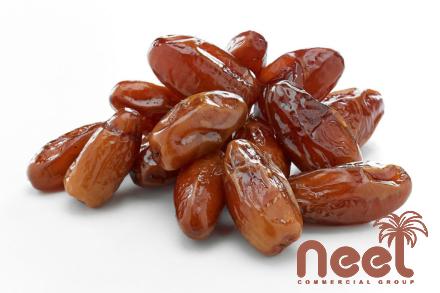
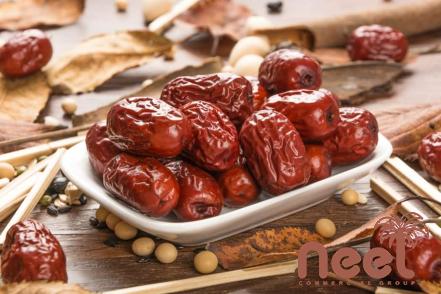
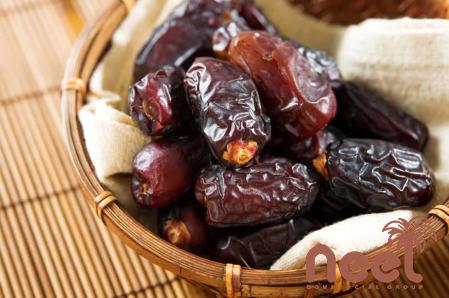
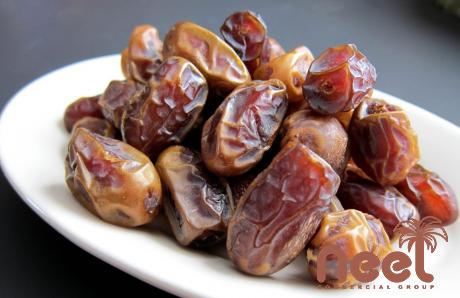
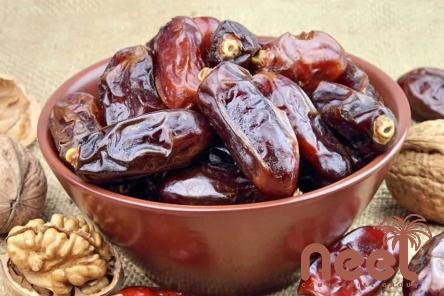
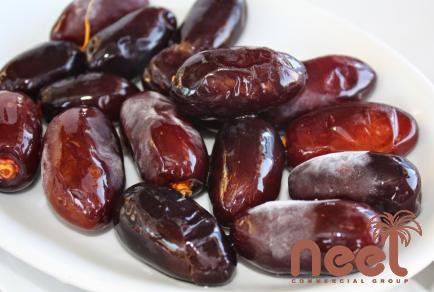
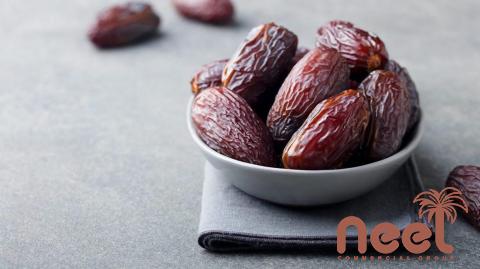
Your comment submitted.